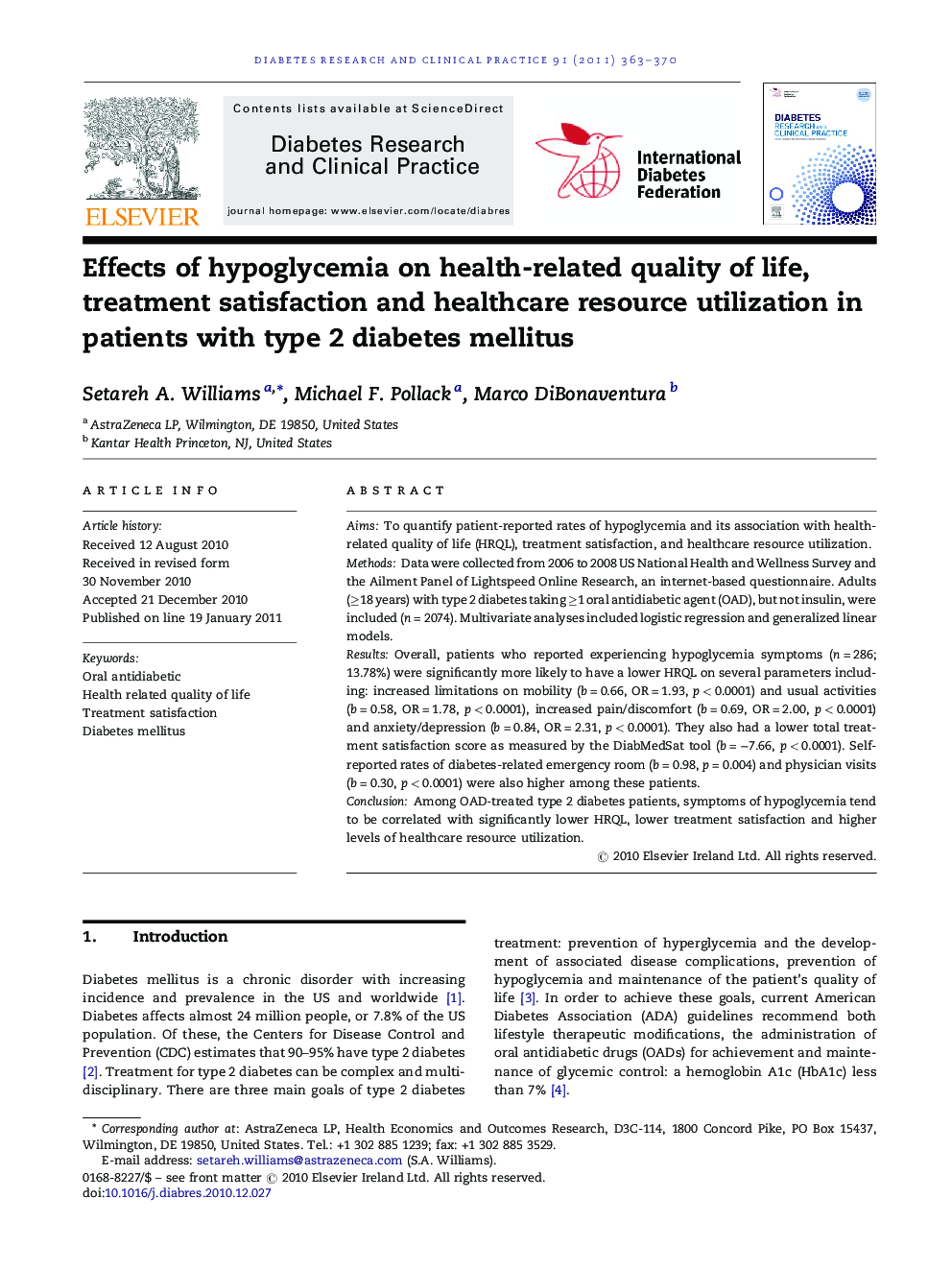| Article ID | Journal | Published Year | Pages | File Type |
|---|---|---|---|---|
| 5900363 | Diabetes Research and Clinical Practice | 2011 | 8 Pages |
AimsTo quantify patient-reported rates of hypoglycemia and its association with health-related quality of life (HRQL), treatment satisfaction, and healthcare resource utilization.MethodsData were collected from 2006 to 2008 US National Health and Wellness Survey and the Ailment Panel of Lightspeed Online Research, an internet-based questionnaire. Adults (â¥18 years) with type 2 diabetes taking â¥1 oral antidiabetic agent (OAD), but not insulin, were included (n = 2074). Multivariate analyses included logistic regression and generalized linear models.ResultsOverall, patients who reported experiencing hypoglycemia symptoms (n = 286; 13.78%) were significantly more likely to have a lower HRQL on several parameters including: increased limitations on mobility (b = 0.66, OR = 1.93, p < 0.0001) and usual activities (b = 0.58, OR = 1.78, p < 0.0001), increased pain/discomfort (b = 0.69, OR = 2.00, p < 0.0001) and anxiety/depression (b = 0.84, OR = 2.31, p < 0.0001). They also had a lower total treatment satisfaction score as measured by the DiabMedSat tool (b = â7.66, p < 0.0001). Self-reported rates of diabetes-related emergency room (b = 0.98, p = 0.004) and physician visits (b = 0.30, p < 0.0001) were also higher among these patients.ConclusionAmong OAD-treated type 2 diabetes patients, symptoms of hypoglycemia tend to be correlated with significantly lower HRQL, lower treatment satisfaction and higher levels of healthcare resource utilization.
